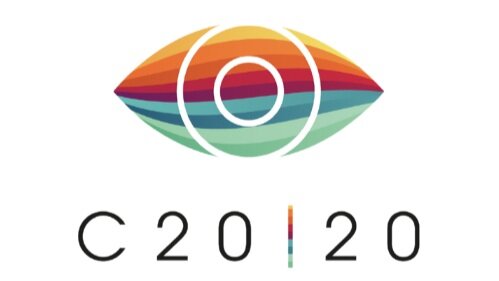
In Vitro Testing
Our team has expertise and equipment to assist with various types of in vitro testing to guide early stage product development.
Drug Delivery Studies
Our laboratories are equipped with state-of-art instruments for in vitro testing of drug content in your formulations and performing in vitro drug release studies. Our experience encompasses the design of release experiments for all kinds of formulations to simulate the in vivo conditions. We develop and validate analytical procedures for small and large molecule drugs as per the regulatory guidelines. We also perform mathematical modelling of your release data to predict the in vivo behaviour of your formulations.
In particular, the C20/20 team has extensive experience in the development of new drug delivery strategies for ophthalmic products. These strategies can be used to improve drug loading, increase drug solubility, reduce dosing, and minimize product side effects.
These include:
Extended release implants
Controlled release implants
Intravitreal implants
Subretinal implants
Topical applications, including emulsions, micelles and nanoparticles
Suprachoroidal injections
In situ gelling materials
Intralenticular
Intracameral
Subconjunctival / subtenon
Microneedles
Contact lens materials
Cellular Assays
Cell-based assays provide low cost and high throughput exposure to biological systems for go/no-go decision making. C20/20 has a wealth of cell experience across dozens of relevant cell lines and primary tissue culture.
We are equipped with current technologies for cellular and molecular biology including:
Cell viability assays (MTT, Live-dead staining including Annexin V/PI staining)
Flow cytometry, including for Cell Viability Analyses
RT-qPCR
Fluorescence and colourmetric plate reader
Western blotting and Immunocytochemistry
Biocompatability Testing
Our team utilizes fibrinogen adsorption to evaluate blood clotting responses to materials.
Additionally, we are able to culture cells in the presence of the materials to determine any cellular toxicity of the materials. These studies are conducted using concentration and time dependent variables. Following these in vitro studies, materials can be assessed in vivo for further compatibility. For more information, visit the section on Safety and Tolerability on the Preclinical Research Services page.
Ocular Perfusion Studies
C20/20 has developed and validated a microfluidic platform to measure outflow of aqueous humour from the anterior segment of ex vivo eyes. Eyes are mounted on a custom stage and by using a microfluidic flow controller we are able to precisely measure outflow rates after exposure to stimuli. This is an excellent aqueous outflow platform for testing novel therapeutics designed to modulate intraocular pressure.
Radiolabelling
We have over 20 years of radiolabelling experience, holding Tritium (3H), Iodine-125 and Iodine-131 licences which allow us to perform radiolabelling using isotopes and measuring iodine-labelled or tritium-labelled target molecules using our gamma counter and scintillation counter. This allows us to provide accurate and precise protein quantification in biochemistry, biomaterials, pharmacology, and drug delivery research. Both the ICL and Iodogen method have been used in our bio-testing lab. We also have mature protocols to purify labelled targets and monitor free iodide. Our experience allows us to provide you with a successfully labelled product with low free Iodine, good recovery and high radioactivity.
We have also developed novel methodologies to modify and label different polymers including a natural biopolymer, hyaluronic acid (HA), a polyelectrolyte, polyvinyl amine (PVAm) and a copolymer of polylactide and poly acrylic acid (PLA/PMAA). This demonstrates the versatility of the method and will allow us to work with other custom polymers as required. By labelling these materials, we can provide precise quantification and tracking in various applications, including in vivo, to suit your needs.
Techniques
C20/20 specializes in a few key techniques including:
Radiolabelling: We hold Tritium (3H), Iodine-125 and Iodine-131 licences which allows us to label proteins and polymers for precise and accurate quantification and tracking both in vitro and in vivo. Our experience allows us to provide you with a successfully labelled product with low free Iodine, good recovery and high radioactivity.
Sterilization: C20/20 is able to offer three options for sterilization: autoclave, UV treatment and gamma irradiation. Gamma irradiation is provided in collaboration with the McMaster nuclear reactor, which utilizes a 10 kCi (370 TBq) Cobalt-60 source. Our team can monitor any changes or degradation of the drug and/or material after any of the sterilization techniques.
Iontophoresis: C20/20 has the equipment and expertise to perform iontophoresis testing to suit your needs. Our set up can accommodate device testing only or include tissue penetration studies using ex vivo tissues.
Contact Lens Testing: Our team has extensive experience with contact lens characterization and testing. This includes assessing mechanical properties, oxygen permeability, transparency, refractive index, water content, water contact angle and extractables. For more information, please visit the Contact Lens Material Synthesis and Characterization section on the Materials Development page.
Equipment
C20/20 has state-of-the-art equipment enabling us to meet your project needs including a variety of imaging and quantification systems.
For a full list of equipment, please visit the Equipment page.





